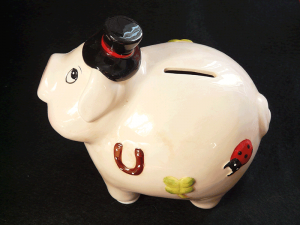According to Statistics Canada, the typical Canadian family spends over $1,600 a year on home utility bills, and a large portion of that energy is wasted. Not to fear: there are several things you can do each month to conserve energy and reduce the strain on your wallet.
Conduct a Home Energy Audit
An energy audit will show you which areas of your home use the most energy. You can conduct this yourself, contact your local utility or call an independent energy auditor. A comprehensive evaluation should include:
- Checking insulation levels
- Looking for open fireplace dampers
- Searching for holes or cracks around doors, light and plumbing fixtures, and other places where air may leak out
- Ensuring appliances and heating and cooling systems are properly maintained.
Temperature Tips
- Weatherize your home – caulk and weather-strip any doors and windows that leak air.
- Install a programmable thermostat that will reduce heating (or turn air conditioning up) at night and when you are not home.
- Consider replacing single-pane windows with double-pane; they have coatings that reduce heat loss or gain, depending on the season.
- Keep your thermostat under 21° C (70° F) in the winter and a degree or two cooler than the outside temperature in the summer.
Water Use
- Repair leaky taps immediately.
- Use low-flow shower heads.
- Insulate your hot-water storage tank and pipes.
- Drain around 1 litre of water from your tank every three months to remove sediment (which impedes heat transfer and lowers efficiency).
- Lower the hot water heater to 48.9° C (120° F).
- Take short showers instead of baths.
- Wash only full loads of dishes and/or laundry.
- Air-dry dishes and line-dry clothes if possible.
Renewable Energy
There are more options than ever to use renewable energy. When building a new home, orient it to avoid overhead summer sun and to benefit from winter sun in cooler climates. Try a solar pool heating system, which can cut costs for heating swimming pools or hot tubs. Under certain conditions, installing solar cells might be right for you.
Vehicle Use
Improve gas mileage by:
- Avoiding aggressive driving
- Observing the speed limit
- Removing roof racks or carriers if not used often
- Keeping up with maintenance—clean air filters can improve gas mileage by as much as 10 per cent.
- Ensuring tires are properly inflated and aligned
- Using the correct grade of oil





